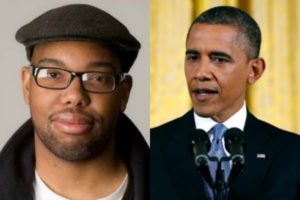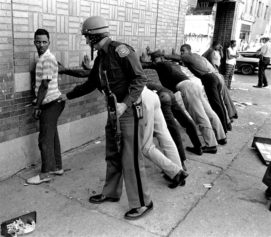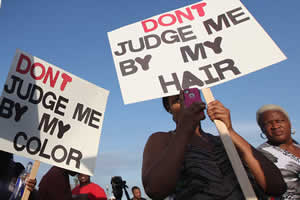
Ta-Nehisi Coates (left) and Pres. Barack Obama (right).
As Pres. Obama’s time in office quickly comes to a close, Americans have begun reflecting on the successes and shortcomings of the nation’s first Black president and what it means for the legacy he hopes to leave behind.
In a long-form piece for The Atlantic, author Ta-Nehisi Coates chronicled the history of the first African-American man to make it to the White House and where the country must go from here as president-elect Donald Trump prepares to take the top spot as commander in chief. Coates noted that while Obama has seemingly secured a lasting imprint in American history, the president naively underestimated the role race would play in the election of his successor.
“I think President Obama deeply underestimated the force of white supremacy in American life,” the author said during an interview with NPR. “It doesn’t mean that everyone … who voted for Donald Trump are racists or white supremacists or anything like that. But what it means is that it’s not a mistake that Trump began his campaign with birtherism. That’s not an accident … he actually began by otherizing the first African-American president of the United States.”
In his piece, titled “My President Was Black,” Coates described how Trump’s inflammatory “birther movement” had overtaken the GOP, with 54 percent of Republican voters believing the president was a devout Muslim born outside America, according to a 2015 poll. He also recalled an implicitly racist tirade by CNBC personality Rick Santelli denouncing Obama for his efforts to help homeowners devastated by the housing crisis, which disproportionately affected African-American families.
“[Santelli] culminated with a call for a “Tea Party” to resist the Obama presidency,” Coates wrote. “Right-wing ideologues had been planning just such a resistance for decades. They would eagerly answer Santelli’s call.”
Clearly, race has played a major role in conservatives’ opposition to an Obama legacy, but Coates argued that the POTUS has been an optimist almost to a fault when it comes to dealing with America’s racist tendencies. He said Americans assumed that because the president is biracial that he would better understand the inner workings of Black America and white America. But that isn’t the case.
Coates cited Obama’s upbringing by his white mother and white grandparents in Hawaii, far removed from the harsh discrimination suffered by Black Americans in the Jim Crow South, as the reason behind his unwavering optimism. The award-winning author also attributed the president’s ability to trust his fellow white American in a way most African-Americans cannot or do not to his childhood.
“I think that ultimately led him to underestimate some of the difficulties he would face,” Coates said.
Those difficulties included firestorms of racist rhetoric on the rare occasions when Pres. Obama chose to address incidents of blatant racism, like the time he denounced the arrest of Harvard professor Henry Louis Gates, Jr. who was detained for trying to get into his own house. According to Coates’ piece, Republicans sided with the arresting officer and said the president had “acted stupidly” for even commenting on the matter.
As the president made efforts to comment on issues related to race/race relations, conservatives increasingly pushed back. For instance, a California GOP official compared Obama to a chimp, while ex-vice presidential candidate Sarah Palin referred to his foreign policy as a “schuck and jive shtick.”
“A chastened Obama then determined to make sure his public statements on race were no longer mere riffs but designed to have an achievable effect,” Coates wrote. “This was smart but still the invective came.”
But Coates went on to praise the president for the manner in which he conducted himself in the face of bigotry in Washington and beyond. He told NPR the president’s success wasn’t just winning the White House but being a symbol of Black America that people were actually proud of.
Still, the writer criticized the POTUS for sometimes seeming to patronize or talk down to those in the African-American community. Coates recalled his mother always telling him, “Don’t be one of those dudes hanging out on the corner,” and said he felt Obama adopted similar rhetoric and took it to the White House.
“I think there’s a crucial difference between being Joe Schmo in the neighborhood and being the head of the government that in many ways is largely responsible for those conditions in the first place,” he said.
One week after Trump’s stunning victory, Coates said he spoke with Pres. Obama, who assured him that despite the outcome of the election, everything would be okay. Initially, the author called out the president’s contradictory statement, who previously commented that Trump wasn’t qualified to run a 7-Eleven.
“I don’t know how you bridge that contradiction, but I felt that he was sincere,” Coates said. “It felt like him reverting back to what was in his bones, and that’s’ optimism and a deep belief in American institutions and the American people.”

